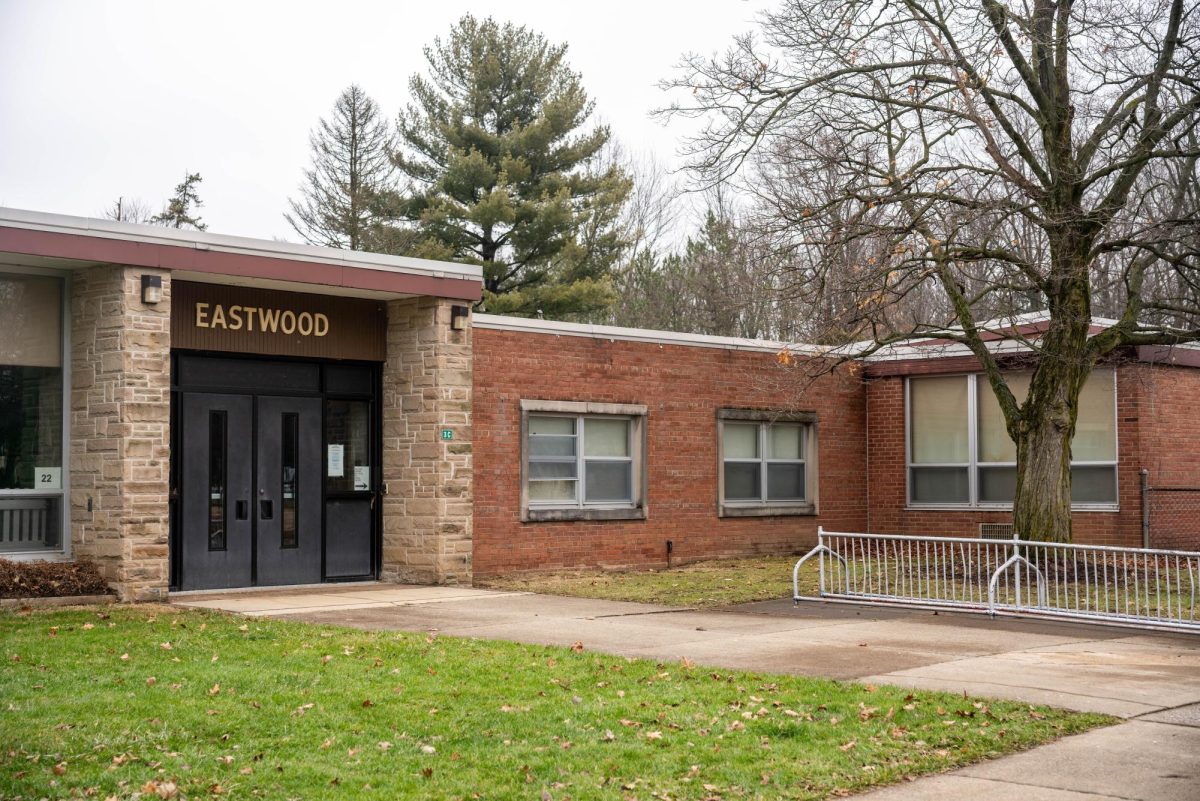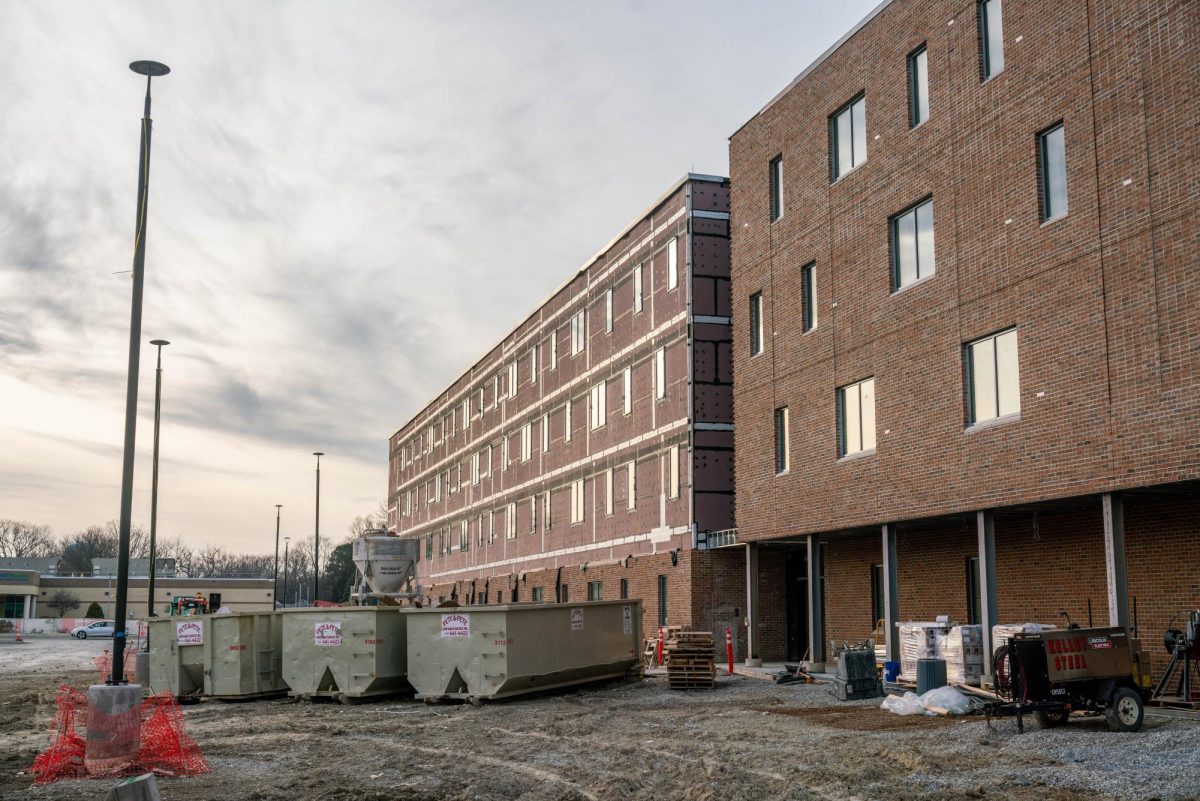This January, three new members of Oberlin City Council — Jessa New, OC ’01; Joe Waltzer, OC ’98; and Libni López were sworn in, along with four incumbents. Like most Oberlin Councilmembers, New, Waltzer, and López have little prior experience in government or politics. They spoke to the Review about their experiences since their inaugurations in January.
Before they assumed office, new Councilmembers were given a copy of Robert’s Rules of Order, a book detailing parliamentary procedures, and the City Council Handbook to inform them on the procedural rules used in meetings and responsibilities of council. Councilmembers received an orientation from Clerk of Council Belinda Anderson and had an opportunity to tour the City offices. Waltzer said that the three newly elected attended a training session with the Ohio Municipal League, which occurred in March.
New said that the tour of the City offices was particularly meaningful.
“That was the coolest thing,” New said. “Learning what [City employees] do and how unbelievably proud they were of their departments … and what their staff does, was probably the biggest influx of information that we received.”
Additionally, new Councilmembers reported doing their own research. New said she watched recordings of City Council meetings for the past quarter of a year to become informed on issues that might arise during the new session. Waltzer said he started attending meetings in the summer before the election.
“I was terrified because I had never been in this role before,” López said. “And I was actually shocked that I was elected. … So when I came in I didn’t really know the process. I had seen Council meetings, but I didn’t know the Roberts rules of order, which is something that I’m now very familiar with. So I had to catch up on reading. I had to really do a little bit of research on what are the things that are most important for me to really create change.”
The new Councilmembers described the transition to council as intense and at times challenging, though rewarding.
“I think one of the [duties] that is outside of the official duties is the amount of time that we actually end up thinking about council stuff,” Waltzer said. “Like in the past, I’d wake up at night sometimes, and I think about my business or different things. Now I find myself waking up at night and mulling through different issues that the City is working on and what not.”
New spoke about how rewarding the Council can be.
“I’m enjoying the conversations I’m having with folks,” New said. “I’ve met so many community members that maybe I wouldn’t have met otherwise. … Many of them have been here tw[o] or three times longer than I have. Just giving them the respect and the understanding that they deserve and listening to them is very gratifying.”
Working as Councilmember is a part time job. All new Councilmembers also have careers outside of council. New owns and operates Slow Train Cafe and the Local Coffee & Tea. Waltzer owns Black River Grill. López is a therapist and has his own practice. He said that he felt it was a privilege to be self-employed because it allowed him to make his own schedule and attend to Council business during the workday.
The new Councilmembers all stressed that the duties of Councilmembers went beyond the job description.
“Can you do the bare minimum? Sure,” New said. “You can attend your City Council meetings, be on the minimum number of boards and commissions as liaison, sit at those board meetings and not say anything, just take notes. You can do the bare minimum, but I don’t feel that anyone on Council right now is interested in doing that. Every one of us has volunteered for numerous things outside of the basic expectations of our roles. We spend time … talking through issues during our work days when, you know, we could be doing … our full-time jobs.”
Outside of her role on Council, New attends Oberlin City Schools Board of Education meetings to facilitate communication between council and the school district. López particularly emphasized the importance of Councilmembers engaging with the community, which he has tried to make an important part of his role on Council.
“I see my role as more of amplifying others’ voices more than just my voice,” López said. “I want to be able to hear what people need and project that more than what I think. … I’m not the expert. I’m just one that allows a conduit for people to express their needs. So I don’t want to center my voice. I want to center their voice. That’s kind of … my ethos.”
López said that once a month, he and Equity Coordinator Terry Richardson-Sanders go to Kendal at Oberlin to talk with residents about City matters. He also said that after the recent hearing regarding Green Acres development, he contacted citizens who spoke during the public comment session with concerns about the development.
“I wanted to reach out to the folks who didn’t agree, just so I can really understand their background, so they don’t feel they haven’t been heard,” López said. “We met either at their house or met up in a public space and just discussed what is it that they want heard, what is it that they are concerned about, and could I maybe provide feedback that eases their concerns or maybe find an alternative or find a middle ground.”
New and López both said that accepting the slow pace at which City government operates has been a challenge.
“I’m sort of an impatient person by nature; when I want something done, I just do it immediately,” New said. “So then to be in a place where, you know, I’m not making the final decision, I’m relying on those around me to go through the hoops and prepare things and present things and do the background and the research, learning patience has been a big part of it for sure.”
López expressed a similar sentiment.
“I feel like … my two-year term will come up really quickly before anything gets moving with housing or transportation,” López said. “I need to practice patience because I want to meet with people who are doing the work, but I also don’t want to overwhelm them because I know that I want things to move forward, but there’s a process for everything. So, that can be frustrating.”
Council terms are two years. An amendment to the City Charter that would have expanded the term to four years was voted down in the March 19 election. All new Councilmembers said they saw pros and cons to the proposed change.
Waltzer said he liked the two-year term because it made running for Council more accessible.
“I was pretty confident making a commitment to Council, knowing it was a two-year term, knowing that I had a new business and a new family and wanted to be involved,” he said. “But if it didn’t really work out for me, I knew it was like a couple years as opposed to a four-year term. I’m not 100 percent sure I would’ve ran if it was a four-year term.”
López had more mixed feelings.
“I think my overall feeling is that it’s sometimes hard to think of how much you could get done in two years,” López said. “It’s just not enough time.”
New also shared her thoughts.
“We’re already almost halfway through our first year, and I feel like I just hit the ground,” New said. “So, that part is hard. But at the same time, it makes you value those 24 months maybe a little bit more than you would because we don’t have time to waste. … Whereas maybe if you had four years, you would feel less inclined to move more quickly on things.”
All new Councilmembers said that being on Council has overall been a great experience. They were glad that living in a small town made getting involved in government accessible.
“I think Oberlin provides such a cool opportunity for people to be engaged with their Council folks that maybe you don’t get in large cities,” López said. “Like where I came from, San Diego, I only knew the Council because they [did] hall meetings. But there was no way I could ever work with our mayor at the time. … The people who live in Oberlin have the opportunity to engage directly with them.”







